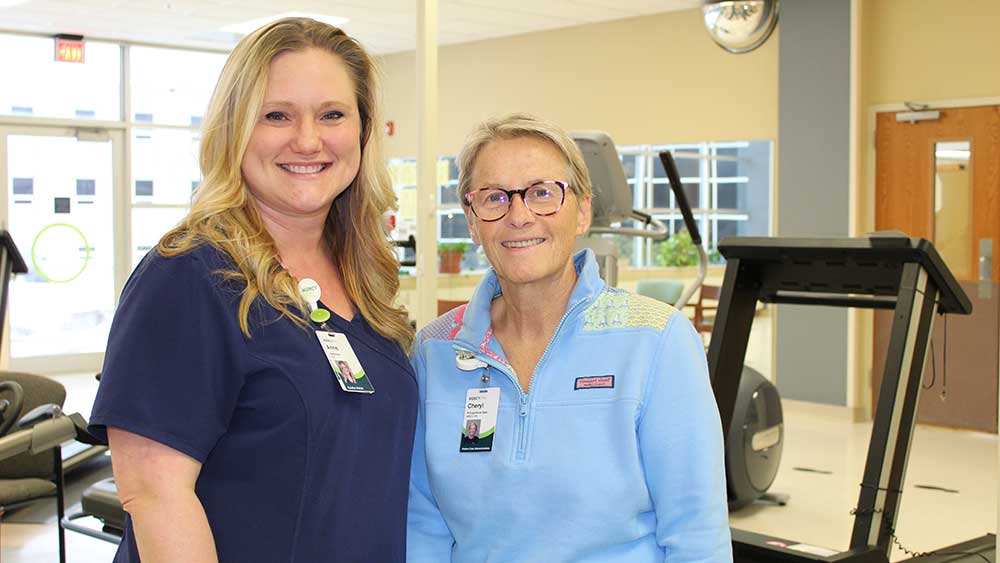
Cheryl Neil thought she was different. She had healthy cholesterol levels, weight and blood pressure. There is also no history of heart disease in her family. A health care worker for over 20 years, she was sure she’d know if she was having a heart attack -- until one night in 2013.
“You’ve had a heart attack”
“I woke up with the most intense pain in the right side of my neck, shoulder and chest,” she said. “I was so miserable I was forced to jump out of bed. I’m one of those people that before I get medical help, I make sure I need it.”
The pain was alarming, and Neil knew she needed medical attention. While in the emergency department, her pain in her right shoulder and body worsened and she grew more and more nauseous.
“I kept thinking ‘this can’t be a heart attack’,” said Neil. “’I just don’t fit the profile.”
And then her doctor came in.
“They said ‘We know what’s wrong with you. You’ve had a heart attack.’ I felt like I had been kicked in the stomach.”
Life after a heart attack
After a six hour visit at the ED, and a cardiac catheter procedure, Neil woke up in the ICU where she stayed for a couple days healing, monitoring her lingering nausea and getting adjusted to her new medications.
“Suddenly I had new pills to take and needed time to adjust how my body reacted to the medications,” she said. “People were shocked and in disbelief because I was known for being healthy and taking care of myself.”
While Neil was recovering in the ICU, she met and discussed cardiac rehab with a nurse.
“Cardiac rehab was incredibly vital to recovering from my heart attack,” said Neil. “Those first few days back at home I could barely get off the couch. My first rehab visit I walked on the treadmill for one minute and was exhausted.”
What is cardiac rehab?
Heart disease is subjective and so is the healing process. Through tools, resources and dedicated health care teams, you can make lifestyle changes for you and your family.
“It’s doable for most people to build back to their level of fitness, or better, after a heart attack,” said Anne Ferris, cardiac rehabilitation nurse at MercyOne Waterloo Medical Center.
Cardiac rehabilitation is more than prescribed exercise. Cardiac rehab is a medically supervised program designed to improve your cardiovascular health if you have experienced heart attack, heart failure, angioplasty or heart surgery. This includes exercise, education and counseling to identify unique individual factors for each patient.
“The goal of cardiac rehab is to monitor how your body acts while exercising, how the medications affect you and identifying any triggers that would place an unneeded pressure on the heart,” said Ferris. “It’s an opportunity for us to ask you one-on-one that evokes conversation on such a complex thing as your heart.”
For Neil, she knew she needed to make changes in her life. While she didn’t have any heart disease in her family and reported healthy cholesterol and blood pressure levels, she still survived a heart attack.
“I wanted to get back and to have the same quality of life as I had before the heart attack.”
No one fits into a cardiac health box. If you have concerns about your heart health, speak with your primary care provider or find a doctor. If you are experiencing heart attack symptoms, immediately call 911.
